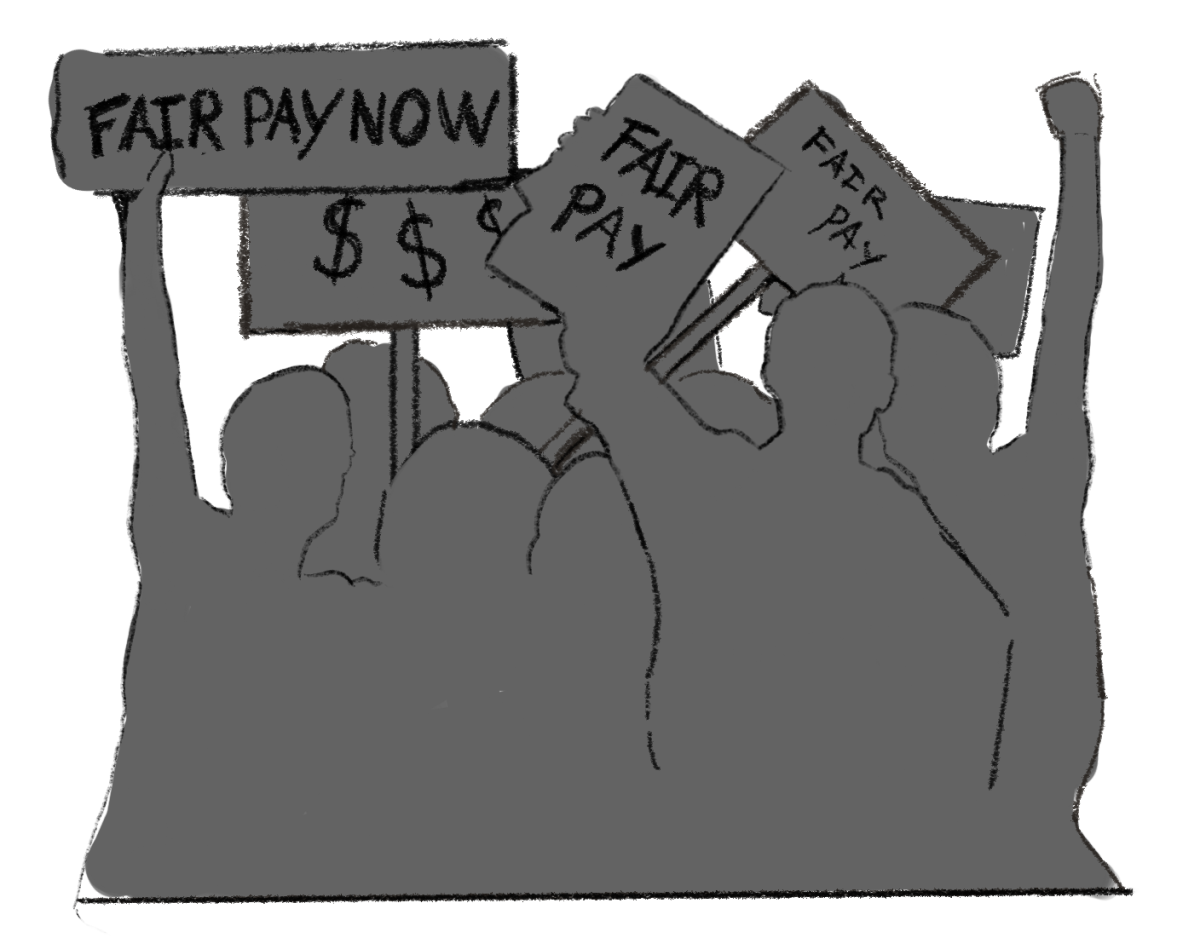On Sept. 15, the United Auto Workers (UAW) officially announced a strike against the “Big Three” American automobile manufacturers (Ford, General Motors and Stellantis) after a breakdown in contract negotiations. The UAW is a labor union representing auto workers in North America. The striking workers have received an increasingly poor deal in recent years, as worker pay has stagnated while profits have remained strong ($21 billion over the last six months), and executive compensation has skyrocketed.
As with all strike actions, this is a struggle between two social classes: workers, or those who sell their labor for a living, and capitalists, who control the means of production. The vast majority of the human population, and Trinity’s student body, belong to this “working class,” not in the sense of blue-collar workers, but as a body of wage laborers. The striking workers have been cheated for far too long and are now standing up to the greed and disastrous corporate leadership of the Big Three. Our shared class consciousness demands we support and stand in solidarity with them.
An issue core to the strike is the executive compensation of the Big Three. Last year, James Farley, Ford’s CEO, made $21 million, about 281 times greater than the compensation of the average Ford worker. Mary Berra, GM’s CEO, made $29 million and Carlos Tavares, Stellantis’ CEO, received $24.8 million. Both took home roughly 360 times more than their average workers. This trend is unfortunately not unique to the auto industry. For example, according to data from the S&P’s Global Market Intelligence, the late Michael Neidorff, for whom Trinity’s business school is named, profited from his workers’ labor as the CEO of healthcare company Centene to the tune of $26.4 million in 2019, equating to roughly 383 times more than Centene’s average wage.
The auto companies have also spent billions on stock buybacks, which artificially inflate the value of their stocks for the short-term benefit of stockholders. In the past, buybacks were largely treated as illegal market manipulation by regulators until Reagan legalized the practice in 1982. Buybacks take company profits generated by the labor power of workers through the extraction of surplus labor value and transfer wealth to shareholders and investors, in one of the most naked cases of exploitation of one social class (workers) by another (owners) in the modern economy.
In response to these comically unjustifiable pay disparities and financial practices, as well as a tiered hiring system that systematically underpays recently hired workers, the UAW is demanding a 36% pay increase over the next four years, a functional end to the tiered hiring system, a restoration of pensions, a 32-hour work week, cost of living adjustments to pay and greater job security. These are exceptionally tame demands, contrary to what auto executives might claim. Historically, more radical union goals included worker control over the means of production.
On a material level, every dollar of profit generated by the Big Three comes from the labor of the striking auto workers. Corporate executives can toss around business plans and investments and press releases all they want, but at the end of the day, nothing of value is produced unless a worker engages in the physical labor that transforms raw materials into functioning cars. It follows that the vast majority, if not all, of the profits the Big Three make are created by and should belong to the workers. As such, I argue there is no such thing as an overly “radical” demand from the union.
These strikes come at a pivotal time in American labor relations. With the SAG-AFTRA/WGA strikes in Hollywood, a new contract for UPS workers and unionization pushes at companies like Amazon and Starbucks, the American labor movement is at its most visible in years. President Joe Biden has even joined the UAW picket line, a historic first for a sitting U.S. president. However, American labor remains comparatively weak by global standards. Only 10% of American workers belong to unions, an exceptionally low figure compared to other wealthy nations. This makes the current momentum all the more important.
You can support the UAW in a few ways. You can sign the UAW’s petition demanding better benefits, and anyone in Dallas or Fort Worth can join the picket line there at two factories currently on strike. You should also boycott purchasing any new cars manufactured by the Big Three. More broadly, only support political candidates who are strongly and vocally pro-labor, and most importantly of all, please try and unionize your own workplace.







